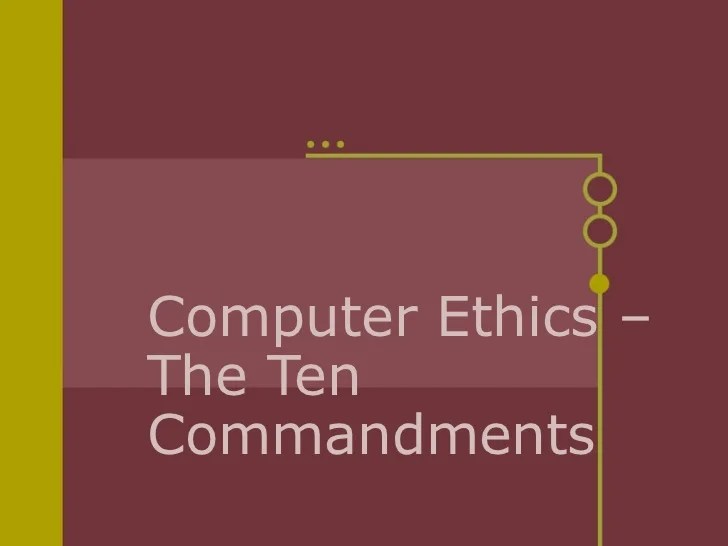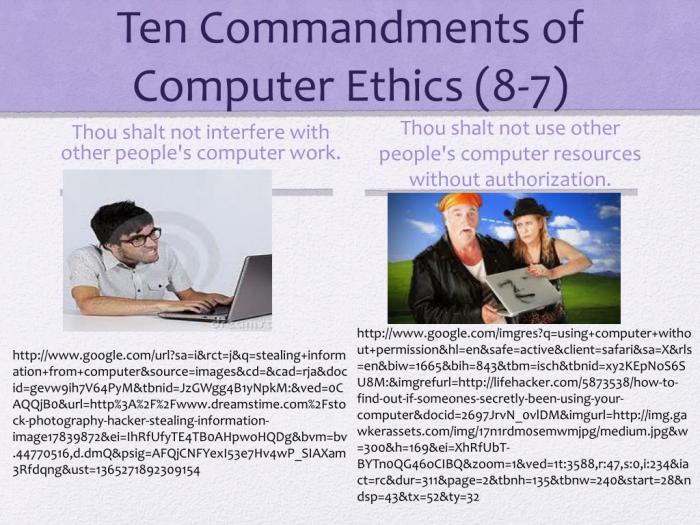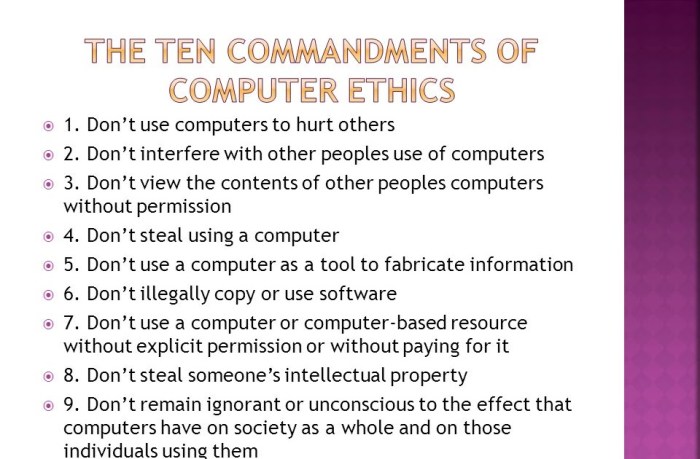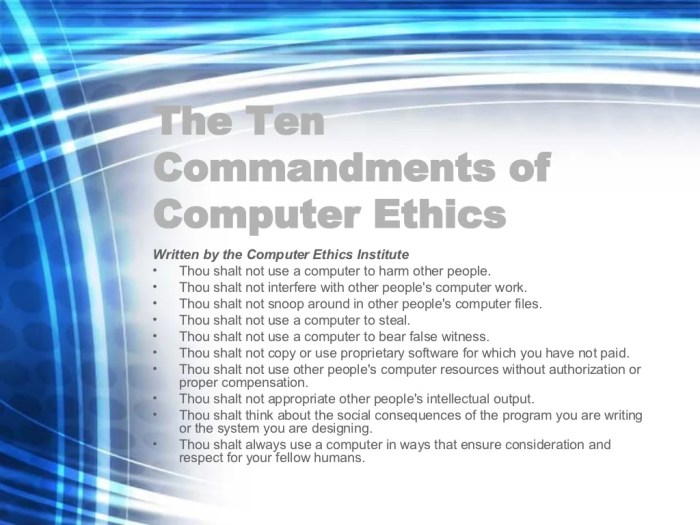As the digital landscape expands, the Ten Commandments of Computer Ethics emerge as a beacon of guidance, offering a framework for responsible and ethical computing practices. These commandments provide a compass for navigating the complex ethical dilemmas that arise in the digital age, ensuring that our interactions with technology align with fundamental moral principles.
The following paragraphs will delve into each commandment, exploring their rationale and implications, and showcasing real-world applications that demonstrate their impact. We will also examine the challenges and controversies surrounding computer ethics, acknowledging the evolving nature of ethical issues in the digital realm.
1. The Importance of Ethical Guidelines in the Digital Age

In the rapidly evolving digital landscape, ethical guidelines serve as a crucial foundation for responsible computer use. Ethical principles ensure that individuals navigate the digital realm with integrity, respect for others, and a commitment to using technology for the greater good.
The absence of ethical guidelines can lead to a range of negative consequences, including data breaches, cyberbullying, and the spread of misinformation. Ethical practices safeguard privacy, protect individuals from harm, and foster a responsible and equitable digital society.
2. Understanding the Ten ments of Computer Ethics

The Ten ments of Computer Ethics provide a comprehensive framework for ethical decision-making in computing. These guidelines address various aspects of computer use, from privacy and security to intellectual property and social responsibility.
Each ment reflects a fundamental principle of ethical conduct, such as respecting others’ privacy, ensuring data integrity, and avoiding malicious or unethical practices.
2.1 Ment 1: Access and Use
- Do not access or use computer systems or data without authorization.
- Do not access or use computer systems or data in a way that could damage or disrupt the system or data.
2.2 Ment 2: Ownership and Use
- Do not make unauthorized copies of software or other copyrighted materials.
- Do not use software or other copyrighted materials without paying the appropriate fees.
2.3 Ment 3: Security, Ten commandments of computer ethics
- Do not intentionally or recklessly introduce viruses or other malicious software into computer systems or networks.
- Do not intentionally or recklessly damage or destroy computer systems or networks.
Popular Questions: Ten Commandments Of Computer Ethics
What is the significance of ethical guidelines in the digital age?
Ethical guidelines provide a framework for responsible computer use, ensuring that our interactions with technology align with fundamental moral principles. They help prevent potential harm and promote a positive and equitable digital environment.
How do the Ten Commandments of Computer Ethics guide ethical decision-making?
The Ten Commandments offer specific guidelines for ethical conduct in various aspects of computing, such as data privacy, intellectual property, and online communication. They provide a clear and concise framework for making ethical choices when faced with complex digital dilemmas.
What are some challenges and controversies surrounding computer ethics?
Ethical issues in computing often involve complex trade-offs between different values, such as privacy and security, or freedom of expression and online harassment. These challenges require careful consideration and ongoing dialogue to find balanced and ethical solutions.

